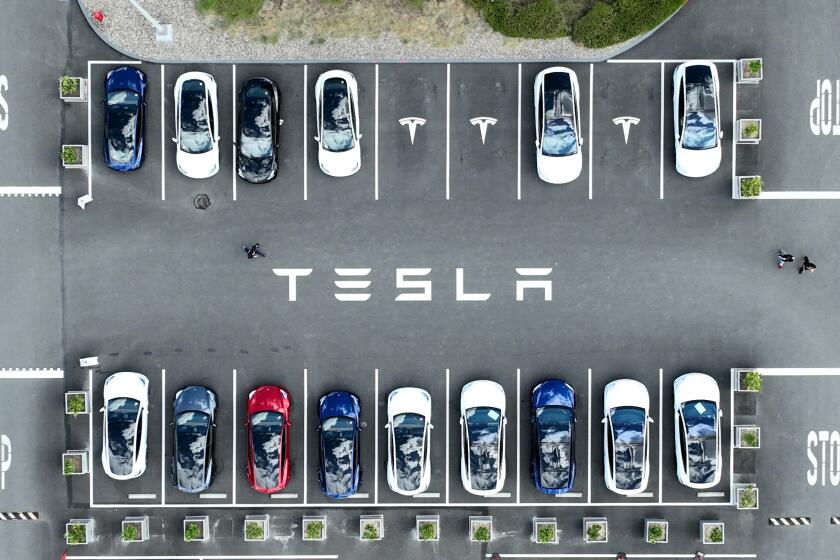NASA deal launches start-up into big time
In a major boost to Southern California’s aerospace industry, a Hawthorne start-up founded by an Internet entrepreneur has been awarded a NASA contract potentially worth $3.1 billion to lift supplies to the International Space Station.
Space Exploration Technologies, also known as SpaceX, beat out aerospace behemoths Lockheed Martin Corp. and Boeing Co. for the contract to build rockets that would replace the space shuttle when it is slated for retirement in 2010.
The commercial contract, the first of its kind for the space agency, marks a huge milestone for the small company, which was founded by Internet entrepreneur Elon Musk and only recently successfully launched a rocket after three attempts.
Musk made a fortune from the sale of Internet payment company PayPal Inc., which he co-founded, and has spent about $100 million of his own money to develop rockets that cost a fraction of the going rate for spacecraft launchers.
The contract also returns a significant space program to Southern California, the birthplace of the Apollo spacecraft and the space shuttle.
“Couldn’t ask for a better Christmas present, for sure,” said Musk, who was vacationing in Boulder, Colo., on Wednesday. “It certainly is good news in these tough economic times.”
Musk said the contract would entail hundreds of new jobs in Hawthorne where the company builds rockets and has about 400 employees. Founded in 2002, the company has been adding about 20 employees a month this year. The hiring pace is now likely to pick up.
The initial contract is valued at $1.6 billion for 12 flights to resupply the space station, with the total potential worth rising to $3.1 billion with follow-up missions, the company said. The first resupply mission is slated for late 2010.
The SpaceX contract was one of two awarded by NASA and marks the first time that the agency will rely on private firms to assume almost all the responsibilities and costs of not only developing and building the rockets but also shipping cargo to the space station. A second contract for eight flights was awarded to rocket maker Orbital Sciences Corp. in Dulles, Va.
Under the new “commercial resupply services” program, NASA pays the companies for each mission. It will pay SpaceX, for instance, about $133 million for each flight, rather than spending about $400 million to $500 million to launch the space shuttle on its own.
In addition to the Falcon 9 launch vehicle, SpaceX is developing a cargo capsule that could eventually carry seven astronauts.
NASA is retiring the space shuttle and has been looking for replacements in the aftermath of two shuttle disasters, most recently in 2003 when Columbia broke up during reentry, killing all seven astronauts on board.
The contract “represents a new way of doing business for NASA,” said Bob Russo, vice president of Launchspace Inc., a rocket industry research and consulting firm. “If successful, it is almost a certainty that NASA will expand its support for using such services in space station activities.”
But it is also a major risk for the space agency, said John Pike, a space policy analyst for GlobalSecurity.org.
NASA is not only relying on two small rocket companies to keep supplies flowing to the space station; it’s also hoping the companies can develop the rocket and the cargo vehicle in months -- not the years it has typically taken for other NASA programs.
“The task is significantly bigger than anything either company has ever done,” Pike said.
“All of these things strike me as significant challenges for even the biggest aerospace companies.”
If SpaceX can’t launch the rockets in time, the space station could be in jeopardy, Russo said. NASA doesn’t plan to have a permanent replacement for the space shuttle until the next decade. And if SpaceX or Orbital is late, the U.S. will have to rely on Russian space vehicles.
“This is undoubtedly a major boost to SpaceX’s credibility and bottom line,” Russo said. He added that relations with the Russians were strained, which could lead to discontinued supply missions to the space station. “SpaceX’s role could be crucial to the station’s survival.”
--






